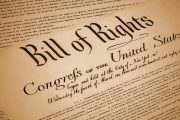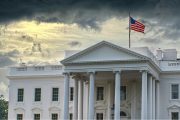
On Monday, July 2, telecommunications giant Verizon Communications filed a brief with the U.S. Court of Appeals in the District of Columbia challenging the Federal Communications Commission (FCC)’s right to mandate “net neutrality” behavior on the Internet.
Verizon claimed that the FCC isn’t allowed to rule on the Internet as it is an “information” service and not a “telecommunications” service. As a result, claims by the FCC that it has such power are unconstitutional and violate the First Amendment’s guarantee of free speech.
The new rules were created by the FCC following its loss in the Comcast case back in April 2010, when the same court ruled that the FCC did not have authority over Comcast’s Internet service, and censured the FCC over its bogus claim of authority.
The FCC claims that it is just doing its job by monitoring behavior of Internet service providers (ISPs) to keep them from charging fees based upon various levels, or “tiers,” of service. But such monitoring is not only illegal, claims Verizon, but unnecessary. Proponents of the FCC position are nervous that a big ISP like Verizon might use its market power to restrict or slow down access to competitors using its networks in order to favor its own. For example, Verizon offers an Internet streaming service, Xfinity, which competes with Netflix, and so net-neutrality proponents are nervous that Verizon will unfairly restrict Netflix users, forcing them to switch to Xfinity instead. The fact that there is no proof of such discrimination doesn’t matter to the FCC: Verizon might, and that’s enough for them.
The FCC rules being challenged by Verizon mandate that all ISPs, including Verizon, may not block websites or slow down connections to content or services that compete with their own products. These rules were established by the FCC regardless of the court’s decision in 2010, proving once again that the battle for freedom — this time the freedom of information — continues full throttle. As Andrew Couts, writing at the DigitalTrends.com website (using, incidentally, that freedom to express his views), said:
Despite the court’s ruling, the FCC went ahead and made its Net neutrality “principles” into official “rules” anyway, without officially re-categorizing Internet access as a “telecommunication” service, and without any new legislation giving it the authority to “regulate the Internet,” as Verizon calls it. This decision rendered their Net neutrality rules completely invalid — or so the [company’s] argument goes.
Verizon went on to claim that the FCC’s new rules are unconstitutional because “broadband networks are the modern-day microphone by which their owners engage in First Amendment speech” and they consequently [violate] the First Amendment by stripping [them] of control over the transmission of speech on their networks.”
There are plenty of reasons to oppose such overreach, including the resultant limiting of freedom of expression, the setting of precedent that the FCC can mandate whatever it pleases in the name of “consumer protection,” the chilling of investment in new technology that would otherwise improve the Internet’s capabilities, and violating an ISP’s right to offer different levels of service at different rates in response to customers’ demands.
But each of these, important as they are, miss the whole point of the matter. What’s at stake here is the government’s never-ending quest to gain power for itself to regulate everything, especially something as dangerous to its own credibility as the free flow of information. With that free flow, citizens are able to monitor, track, follow, and potentially restrict government incursions into places it has no right to be.
Mike Adams, writing at his blog, Natural News, put the matter well:
Governments don’t like to be embarrassed. They don’t like their secrets aired on the internet. Sure, it’s okay for governments to tap all of your secrets by monitoring your phone calls, emails and web browsing habits, but every government seeks to protect its own secrets at practically any cost. That’s why governments … will now start to look for new ways to censor and control the internet.
What governments around the world are suddenly beginning to realize is that a free internet is ultimately incompatible with government secrets, and secrets are essential to any government that wants to remain in power. That’s because … most government secrets are based on information governments wouldn’t want their people to discover — secrets that might threaten the legitimacy of government if the people found out the truth.
And so the brief filed by Verizon exposes an important point: The FCC is determined to create for itself “implied authority” that never existed in the language that empowered it in the beginning. Adams can see the future. Once that implied authority is established,
The FCC will simply ban what it calls “information traitors,” which will include people like Julian Assange (Wikileaks) who publish state secrets….
Once the public is comfortable with that, the FCC will advance its agenda to include “information terrorists” which will include anything posted about Ron Paul, the Federal Reserve and the counterfeit money supply, G. Edward Griffin, or anything from true U.S. patriots who defend the Constitution….
After that censorship is in place, the FCC will likely begin to push the corporate agenda by banning websites that harm the profits of large corporations….
At present it appears unlikely that the court will reverse itself and rule in favor of the FCC. But Verizon’s challenge is a reminder of the never-ending battle for freedom and the eternal vigilance that it requires.




